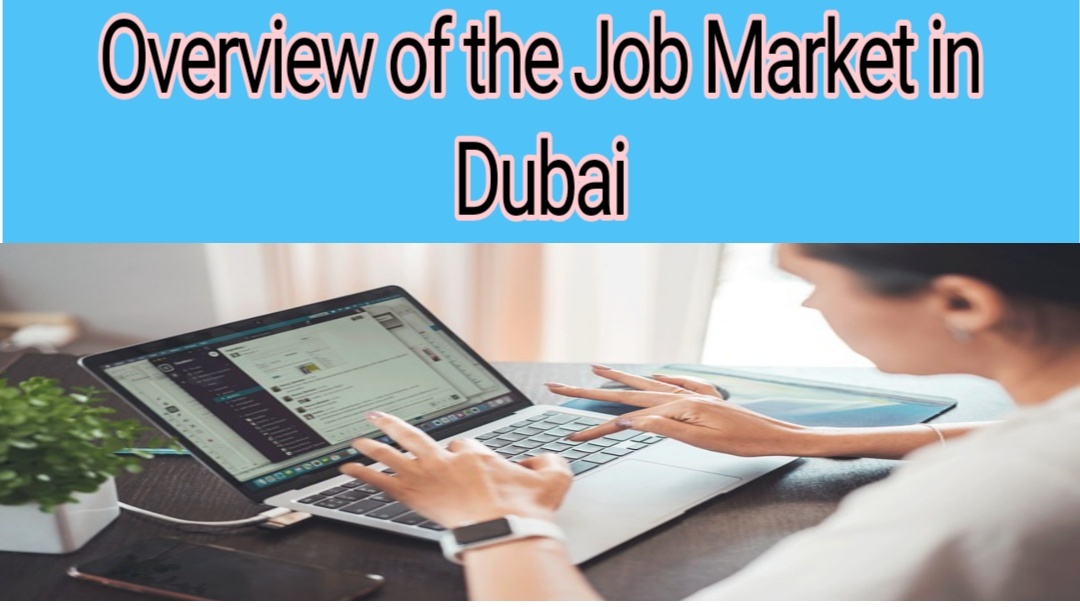Dubai, renowned for its impressive skyline and rapid development, has emerged as a global economic powerhouse and a key employment hub in the Middle East. Over the past few decades, the city has transformed from a modest trading port into a vibrant metropolis that attracts professionals from around the world. The job market in Dubai is characterized by its dynamism and diversity, offering opportunities across a wide range of industries. This article provides an in-depth overview of the job market in Dubai, highlighting its economic drivers, employment trends, and future prospects.
Job Market in Dubai Economic Overview
Dubai’s economy is one of the most diverse in the region, heavily reliant on trade, tourism, aviation, real estate, and financial services. The city’s strategic location at the crossroads of Europe, Asia, and Africa makes it a critical logistics and trade hub. Dubai’s economy is bolstered by several free zones, such as the Dubai International Financial Centre (DIFC) and Jebel Ali Free Zone, which attract international businesses with tax incentives and modern infrastructure.
The government of Dubai has implemented numerous initiatives to foster economic growth and diversification. Vision 2021 and Dubai Plan 2021 are strategic frameworks aimed at enhancing the city’s global competitiveness and sustainability. These initiatives focus on innovation, infrastructure development, and creating a business-friendly environment, which, in turn, generate a steady demand for skilled professionals across various sectors.
Employment Trends
The job market in Dubai is influenced by its economic policies and global market conditions. Key trends in the employment landscape include:
- Growth in the Technology Sector: Dubai is rapidly emerging as a technology hub, with significant investments in artificial intelligence, blockchain, and fintech. The Dubai Future Foundation and the establishment of Smart Dubai are initiatives aimed at transforming Dubai into a smart city, driving demand for IT professionals, data scientists, and cybersecurity experts.
- Tourism and Hospitality: Tourism remains a cornerstone of Dubai’s economy. The city attracts millions of visitors annually, leading to robust demand in the hospitality sector. Jobs in hotels, restaurants, and travel agencies are plentiful, with the Expo 2020 Dubai (now extended into 2022 due to the pandemic) providing a significant boost to the sector.
- Construction and Real Estate: Dubai’s skyline is continually evolving, with numerous mega-projects like Dubai Creek Tower and Mohammed Bin Rashid City. The construction boom fuels demand for engineers, architects, project managers, and laborers. Real estate also remains a key employer, with roles in property management, sales, and marketing.
- Healthcare Expansion: With the goal of becoming a global healthcare destination, Dubai is investing in medical infrastructure. The demand for healthcare professionals, including doctors, nurses, and medical technicians, is on the rise. Dubai Healthcare City is a major hub for medical services, education, and research.
- Financial Services: The financial sector in Dubai is robust, with the presence of numerous international banks, insurance companies, and investment firms. Financial analysts, auditors, and compliance officers are in high demand. The DIFC plays a crucial role in consolidating Dubai’s status as a leading financial center.
Adapting to Changing Economic Conditions
Dubai’s job market is not immune to global economic fluctuations and local policy changes. Recent shifts in the global economy, such as fluctuating oil prices and geopolitical uncertainties, have impacted various sectors in Dubai. However, the city has shown resilience by diversifying its economy and focusing on non-oil sectors like technology and tourism.
The COVID-19 pandemic, for instance, caused significant disruptions in many industries, particularly tourism and hospitality. Nonetheless, Dubai’s proactive response, including health and safety measures and economic stimulus packages, has facilitated a recovery. The acceleration of digital transformation and remote working trends has also created new opportunities in the technology sector and beyond.
Furthermore, Dubai’s strategic initiatives, such as the creation of new business districts and investment in smart infrastructure, are designed to attract international companies and investors, thereby supporting job creation and economic stability.
Conclusion
Dubai’s job market is a reflection of its ambitious vision and strategic economic policies. The city’s ability to attract talent from around the world is a testament to its dynamic economy and diverse opportunities. As Dubai continues to invest in innovation and infrastructure, the job market is expected to remain robust, offering a multitude of opportunities for both local and expatriate professionals.
Summary
In summary, understanding the intricacies of Dubai’s job market requires an appreciation of its economic drivers, current employment trends, and the influence of global events. For job seekers, staying informed about these factors is crucial to navigating the vibrant and competitive job market in Dubai successfully. The future of employment in Dubai looks promising, with continued growth and diversification paving the way for new and exciting career prospects.

